
The World Organization of the Scout Movement is the largest international Scouting organization. WOSM has 173 members. These members are recognized national Scout organizations, which collectively have around 43 million participants. WOSM was established in 1922, and has its operational headquarters at Kuala Lumpur, Malaysia and its legal seat in Geneva, Switzerland. It is the counterpart of the World Association of Girl Guides and Girl Scouts (WAGGGS).

Scouting Nederland is the national Scout organisation of the Netherlands with approximately 110,000 members (53,324 male and 54,663 female, 87,000 youth members, as of 2010.

The Plast National Scout Organization of Ukraine, commonly called Ukrainian Plast or simply Plast, is the largest Scouting organization in Ukraine.
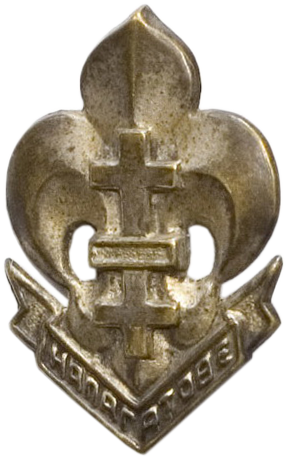
The Scout movement in Belarus consisted of 1200 members when it joined the World Organization of the Scout Movement (WOSM) in 2010. There are at least five nationwide associations as well as some regional associations. In addition, there were at one time Scouts-in-Exile in metropolitan areas of the United States, and there are presently international Scout units in Belarus.

The Boy Scouts of the United Nations existed from 1945 through perhaps the early 1980s as the Scouting association serving the families of diplomats and staff of the United Nations, active in both Geneva and at Parkway Village in New York. The organization sponsored groups in India, Lebanon and Cyprus and had ties to the International Boy Scouts of the Canal Zone.

Dr. Oleksander Tysovsky, pseudonym: "Drot", founded the Ukrainian Scouting organization Plast in 1911 and adapted the universal Scout principles to the needs and interests of Ukrainian youth. In 1944 he emigrated to Vienna. He became involved in Plast in exile, as well, and took part in a camp celebrating the 45th anniversary of Plast in Plastova Sich in Canada in 1957. He died in Vienna 1968 and was buried in Vienna. He was reburied in the famous Lychakivskiy Cemetery in Lviv in 2002.
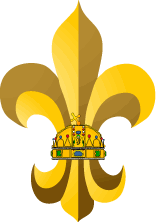
Külföldi Magyar Cserkészszövetség is a Scouts-in-Exile organization created for youth of Hungarian descent. Scouting makes it possible for young men and women to learn more about their Hungarian heritage, language and culture. The organization is dedicated to carrying out its obligations at four levels: God, their adopted countries, their fellow man and the Hungarian nation. The Boy Scout and Girl Scout units meet in conjunction with Hungarian weekend schools, which in many instances they also operate.

Colonel Oleg Ivanovich Pantyukhov was the founder of Russian Scouting.
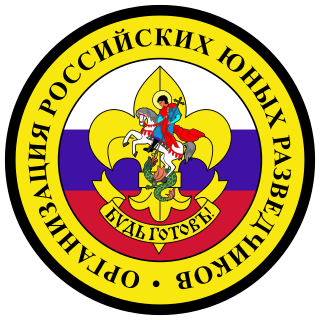
The Organization of Russian Young Pathfinders is one of the two large Russian Scouting in Exile movements. This organization has historically drawn the conservative side of the spectrum of Russians in exile.

The National Organization of Russian Scouts is one of the two large Russian Scouting in Exile movements. This organization has historically drawn the liberal side of the spectrum of Russians in exile. In 2009 NORS celebrated the centenary Jubilee of Russian Scouting.

The National Association of Russian Explorers is a youth organization founded by former Russian Scout Pavel Nikolaevich Bogdanovich, a White emigre and veteran of the Russian Imperial army, in the late 1920s after leaving the National Organization of Russian Scouts of Colonel Oleg Pantyukhov. Also the name National Organisation of Russian Pathfinders was used.

The Scout and Guide movement in the Czech Republic is served by
The Scout and Guide movement in Slovakia is served by
The Scout and Guide movement in Albania is served by
The Scout and Guide movement in Armenia is served by
Scouting has been active in displaced persons camps and in the lives of refugees since World War I. During and after World War II, until the early 1950s, Scouting and Guiding flourished in these camps. These Scout and Girl Guide groups often provided postal delivery and other basic services in displaced persons camps. This working system was duplicated dozens of times around the world. In the present, Scouting and Guiding once again provide services and relief in camps throughout war-torn Africa.

The Hungarian Scout Association in Romania is the Scouting organization of the Hungarians in Romania. Currently, there are 134 Scout groups, of which 107 are active.
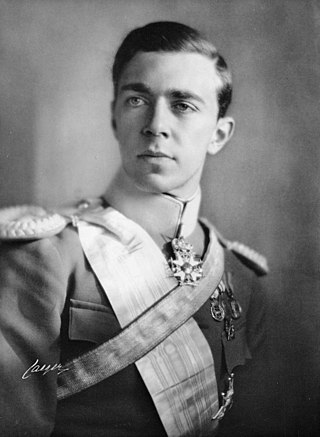
Prince Gustaf Adolf, Duke of Västerbotten was a Swedish prince who for most of his life was second in the line of succession to the Swedish throne. He was the eldest son of Gustaf VI Adolf, who was crown prince for most of his son's life and ascended the Swedish throne three years after his son's death. The current king, Carl XVI Gustaf, is Prince Gustaf Adolf's son. The prince was killed on 26 January 1947 in an airplane crash at Kastrup Airport, Copenhagen, Denmark.
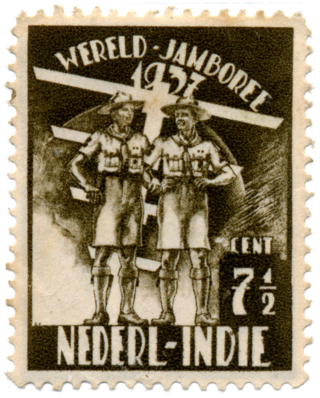
Javaansche Padvinders Organisatie (JPO) was a Scouting organization in the Dutch East Indies. This first Indonesian Scouting organization was established on the initiative of Sri Paduka Mangkunagara VII in 1916.
The International Scouter Association was founded during a Scout conference in March 1947 in Mittenwald. The founders were German Scouts and Scouts-in-exile. The seat was in Munich.















